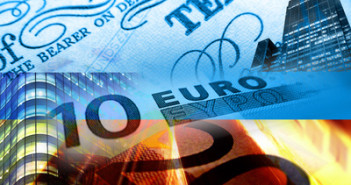EUR/USD continued to move upwards after US Non-Farm Payrolls were weaker than forecast. The pair capped a stellar week in which it pushed to its highest level in over three months. Eventually, the markets realized the big step forward and the pair retracted slightly in overnight trading. The highlight of the week is sure to be the critical FOMC meeting, where the Fed will decide whether to launch QE3 or not. In today’s releases, both French Industrial Production and Euro-zone Investor Confidence rose and easily beat the market forecasts.
Here’s an update about technical lines, fundamental indicators and sentiment regarding EUR/USD.
EUR/USD Technical
- Asian session: Euro/dollar retracted to 1.2780 and consolidated at 1.2784. The pair is steady in the European session.
- Current range: 1.2750 to 1.2814.
Further levels in both directions:Â Â 
- Below: 1.2750, 1.2670, 1.2624, 1.2587, 1.2520, 1.2460, 1.24, 1.2360, 1.2330 and 1.2250.
- Above: 1.2814, 1.29, 1.2960, 1.30, 1.3060, 1.3105, 1.32 and 1.3290.
- 1.2814 is the next line of resistance.
- 1.2750 is providing weak support.
Euro/Dollar surge continues after NFP – click on the graph to enlarge.
EUR/USD Fundamentals
- 6:45 French Industrial Production. Exp. -0.5%. Actual +0.2%.
- 8:30Â Euro-zone Sentix Investor Confidence. Exp. -30.4 points. Actual -23.2 points.
- 19:00Â US Consumer Credit. Exp. 9.1B.
EUR/USD Sentiment
- Euro surges as ECB Announces OMT: After months of criticism of the ECB for its inaction, we can safely say that Draghi delivered. The ECB presented the Outright Monetary Transactions program: unlimited bond buying of bonds up to three years in maturity, provided that the country asks for help. Draghi even lent Spanish PM Rajoy a helping hand by enabling bond buying also in case of a “precautionary program†– a soft bailout and not only a full adjustment one. The ECB left rates unchanged for now, but a cut is on the cards next month.
- Spain to ask for help, yields tumble down: Investors are returning to Spain ahead of the ECB. Not only ECB targeted short term yields are falling: Spanish benchmark 10 year yields responded positively to the ECB program and dropped below 6%. Spanish PM Rajoy hosted German Chancellor Merkel in Madrid and Spain is getting closer to asking for aid. This will likely occur after September 14th, when the German court rules and as European finance ministers convene. As aforementioned, Spain could opt for a “soft bailoutâ€. After Catalonia asked for 5 billion euros of aid, also its southern neighbor joined in and banks are also tapping into the government’s limited resources. Also unemployment is on the rise. To further complicate matters for the central government, separatist fervor is alive and well in Catalonia, with a huge pro-independence rally scheduled for Tuesday in Barcelona.
- QE or no QE?: US Non-Farm payrolls were a big disappointment, and with it speculation is rising that the Fed will respond with  more dollar printing. The economy added 96,000 non-farm payrolls in August, well below the market estimate of 125,000 jobs. Will this be enough to prod the Fed into action? Bernanke’s speech in Jackson Hole reiterated that the the Fed would not step in unless economic conditions warranted such a move. Analysts are divided as to what happens now – a Reuters poll after the weak NFP numbers found that 60% of economists believe that the Fed will bring in QE3 this week, up from 45% percent in August.
- German Court to Rule on ESM: On September 12th, Germany’s Constitutional Court will hand down a decision on the legality of the European Stability Mechanism as it stands for Germany. The court’s ruling is required in order to ratify the ESM proposal by EU officials. Opponents to the ESM say it is unconstitutional and will harm Germany’s economy. The Court is expected to vote in favor of the proposal, but we could see some fluctuation by the euro in the days prior to the decision, as a ruling that the ESM is unconstitutional will trigger huge market turmoil and could lead to the breakup of the euro.
- Greece coalition squabbles as troika return: Greece’s 3 coalition partners are still unable to agree on new austerity, as the troika delegation lands in Athens. In the meantime, anti-austerity parties gain traction in the polls, and unemployment figures are terrible, as the unemployment rate rose to a staggering 24.4%, up from 23.5%.



